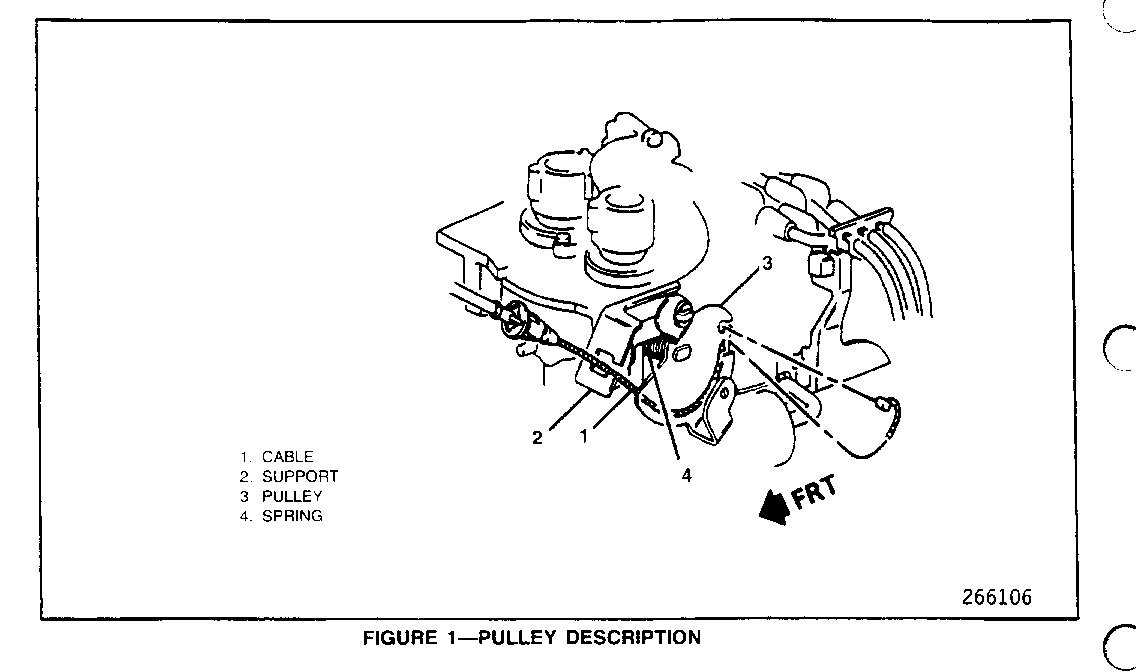ACCELERATOR PEDAL POSITION IS LOWER AFTER USING CRUISE

SUBJECT: ACCELERATOR PEDAL POSITION IS LOWER AFTER USING CRUISE/MORE EFFORT NEEDED
MODEL and YEAR: 1991-92 S/T TRUCKS AND M/L, G VANS
Owners of some 1991 and 1992 S/T and M/L vehicles equipped with 4.3L engines (RPO LB4) or 1991 and 1992 G-vans equipped with 4.3L, 5.OL and 5.7L engines (RPO LB4, L03 and L05) may comment that after using cruise control the accelerator pedal position at idle is lower. Customers may also comment that more effort is needed to use the accelerator pedal. Floor contact by the pedal may also be encountered prior to wide open throttle reducing the performance capability of the vehicle.
The above conditions may be the result of the accelerator cable slipping out of the pulley channel on the throttle body (Figure 1). The pulley acts as a cam and is located on the driver's side of the TBI unit. When the cable slips off the pulley, the effective radius of the cam is reduced and more effort is required to depress the pedal. Also the pedal position at idle is lowered.
The accelerator cable may slip out of the pulley channel when in cruise control and under the following conditions.
- The accelerator cable is kinked, curled, or bent.
- A build up of foreign material occurs in the back side of the cable wiper-cap where the cable enters the cable jacket. The foreign material prevents the cable to operate freely.
SERVICE PROCEDURE
To correct vehicles encountering the cable slipping out of the pulley replacement of the accelerator cable is necessary. Refer to the appropriate 1992 Light Truck Service Manual, Fuel and Emissions section, page 4-72 for proper accelerator cable removal and installation.
NOTE: Before installation, inspect the cable for kinks, curls or bends, especially at the TBI end.
SERVICE PARTS INFORMATION
Part Number Description Application ----------- ----------- ----------- 15693481 Cable Asm-Accel S/T
15957337 Cable Asm-Accel M/L
15631395 Cable Asm-Accel G
Parts are currently available from GMSPO.
WARRANTY INFORMATION
For vehicles repaired under warranty use:
Labor Operation - J5330
Use applicable labor time guide for labor hours.

General Motors bulletins are intended for use by professional technicians, not a "do-it-yourselfer". They are written to inform those technicians of conditions that may occur on some vehicles, or to provide information that could assist in the proper service of a vehicle. Properly trained technicians have the equipment, tools, safety instructions and know-how to do a job properly and safely. If a condition is described, do not assume that the bulletin applies to your vehicle, or that your vehicle will have that condition. See a General Motors dealer servicing your brand of General Motors vehicle for information on whether your vehicle may benefit from the information.
